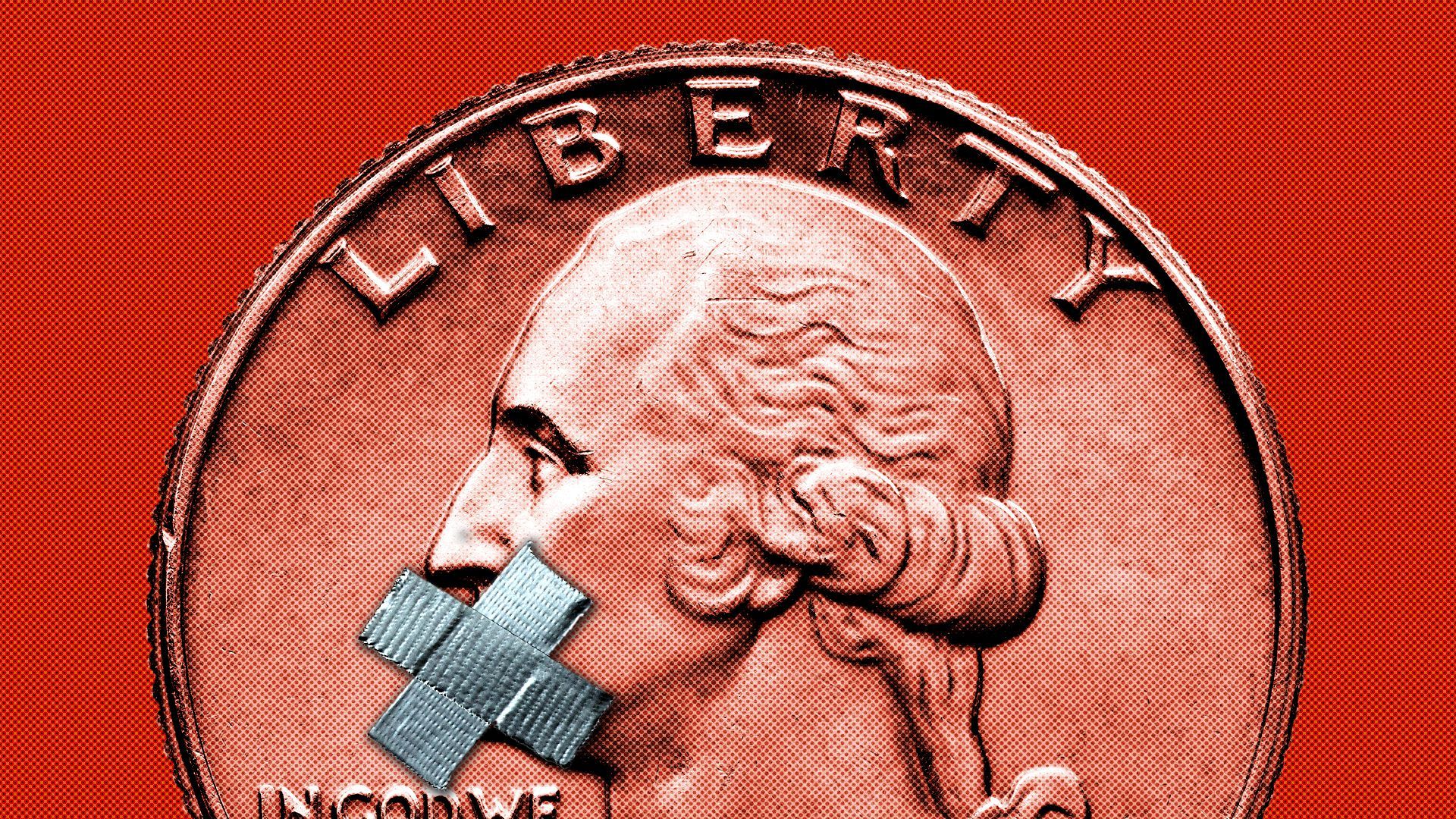Olympic sponsors' silence on human rights feeds censorship fears

- Hope King, author ofAxios Closer

Illustration: Annelise Capossela/Axios
Top Olympic sponsors have been tiptoeing around or staying silent on reports of human rights abuses in northwest China.
Why it matters: The companies — 13 of the most influential in the world — are in a lose-lose situation whether they speak out or stay silent. The lack of acknowledgement of the human rights concerns also feeds growing fear that censorship within China is spreading beyond its borders.
- “It feels like [the Chinese government] is ruling how we are providing information … how we discuss [or] think about them and their games,” Tenzyn Zöchbauer, executive director of Tibet Initiative Deutschland, a human rights group, told Axios.
- "Sponsors have a big and important role because no Olympic games are possible without sponsorship."
The big picture: A growing number of businesses and organizations are facing this problem as the size of the Chinese market makes it too crucial to upset.
- “China's leverage has changed in every dynamic,” Terrence Burns, who as a consultant helped the country win its Beijing 2008 Summer Olympics bid, told Axios.
State of play: More than 200 activist groups have pushed U.S. and western companies to drop their sponsorships and broadcasts of the Beijing Olympics without success, the Washington Post reports.
- All 13 top sponsors declined to respond or did not respond to Axios when asked why they’ve stayed silent on the issues.
- The International Olympic Committee told Axios it “engage[s] with all the Organising Committees” on everything from labor conditions to health and environment and “peaceful assembly and protest."
- “With all that we are seeing from Beijing 2022 with regard to these obligations, at this stage we have no reason to doubt their implementation."
Between the lines: The Olympic Games amplify social issues given the level of international participation and global spotlight that it attracts.
- “The countdown to each games goes under an ever-greater magnifying glass,” former IOC marketing and broadcast rights director Michael Payne told Axios.
- Burns noted that sponsorships are locked in for multiple years and sponsors don’t have the ability to opt in and out of which games they're going to participate in.
Yes, but: The least that the companies can do is make a public statement, because “they have a right to say that they don’t agree with how the host country is ruling … or how they are handling their own communities,” said Zöchbauer.
- “We give power to the Communist party by being silent,” she added.
What to watch: Whether the IOC changes its process to choose host countries and cities.
The bottom line: The Olympics promote “a peaceful society concerned with the preservation of human dignity,” per the IOC's charter.
- “When people feel [Olympic ideals are] being abused or misused, they react strongly, which is the core of what we’re talking about,” said Burns.